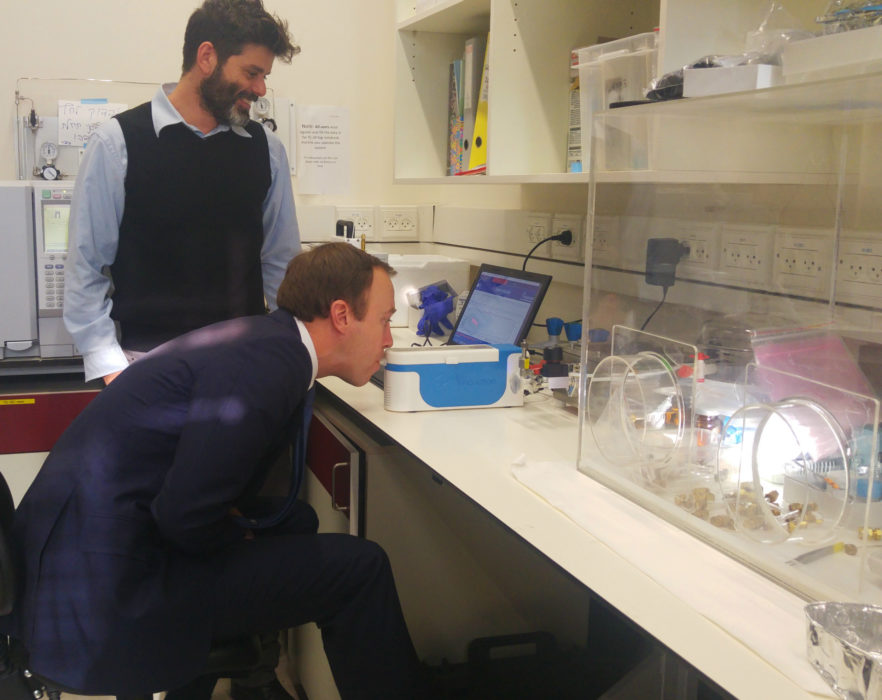A unique investment in medical research teams up British and Israeli scientists to look for cures to the world’s most challenging diseases
One in 500 people in the UK suffer from Parkinson’s disease and 175,000 Brits suffer heart attacks each year. But these numbers may drop significantly in the pretty near future thanks to Britain’s investment in international medical research – not just in the UK but also in Israel.
BIRAX – the Britain Israel Research and Academic Exchange Partnership – is managed by the British Embassy and British Council in Israel, together with the UK Government’s Science & Innovation Network. The programme promotes cooperation between researchers in leading British and Israeli universities on tackling some of the world’s most challenging conditions and diseases. Since its launch in 2011, nearly £7 million has been invested to fund fifteen joint UK-Israel medical research projects.
For example, BIRAX enabled Prof. Roger Barker from Cambridge University to meet and work with Prof. Hossam Haick of Israel’s Technion Institute of Technology. In research co-funded by Parkinson’s UK, the two leads’ teams developed technologies using nano-particles printed on tiny chips to detect medical conditions such as Parkinson’s using only breath samples. Using these technologies, test results are available in a matter of minutes and once a patient is detected as having a disease early treatment can be started. In this case, the Israeli team provide the technology while their British peers provide cutting-edge clinical setting for the research.
Another BIRAX project teamed up Prof. Chris Denning of University of Nottingham with Prof. Lior Gepstein from the Technion’s Rambam Health Care Campus. In their work, co-funded by the British Heart Foundation, they are creating the next generation of heart pacemakers: ones that are controlled by light rather than electrical impulse. The researchers have grown cardiac tissue from stem cells, which have the potential to turn into any type of tissue. By controlling the growth path of these cells, the scientists then generate heart tissue to replace damaged areas in hearts that have suffered heart attacks and actually repair them.
Both researchers were working on this subject separately for years, but when they found out they each had competition, they decided to team up through the BIRAX programme. Their joint work saves years of medical research with the goal of saving future lives in the UK and the rest of the world.
BIRAX is now looking for new areas to expand. Future projects may focus issues surrounding diabetes and (literally) mending broken hearts.

